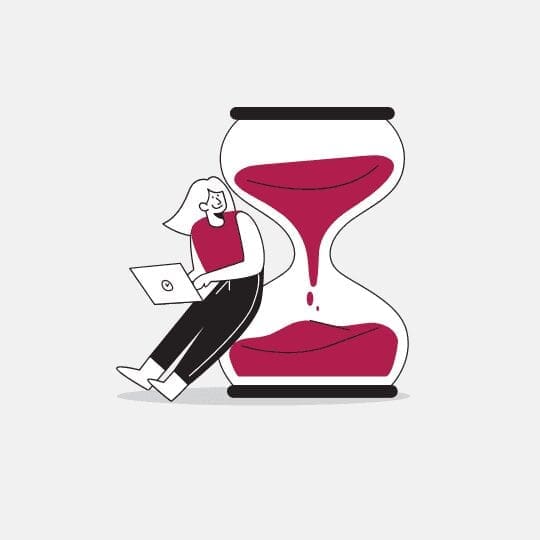Mentorship Programs
ABOUT
At the System Dynamics Society, we understand the vital role of mentorship in shaping the future of our field. That’s why we offer different options to support individuals looking to learn and apply systems thinking and System Dynamics skills. Whether you’re just starting out or looking to enhance your expertise, our mentorship programs provide tailored guidance and support to help you achieve your goals.
For more immediate support and community engagement, you can make a request on our General Discussion Forum or Facebook Discussion Group.
Become a mentor
Join our 25+ seasoned mentors and help build the skills of the next generation of modelers. You will be matched with those you can best support. Meetings can be aranged at your convenience with your assigned mentees.
unlock all benefits
Unlock your full potential with Society membership and access to expert guidance and support programs
.
Peer Mentoring
No membership required. Open to all.
Peer mentoring typically involves students who join together early in their academic careers and continue to support each other throughout their education and into their careers. These groups are formed around common interests and geographic proximity, and they meet regularly to share their work. Typically, group meetings last between 1-1.5 hours every 1-3 weeks, with breaks over the summer. A group leader emerges to organize the meetings and agenda, preferably on a regular basis with advance notice.
Peer mentoring groups may also choose to receive support from an experienced mentor who will listen, ask questions, and provide insight and suggestions for the members’ work. This mentor does not lead the group but rather serves as a resource for the group’s members. Many peer mentoring groups continue even after graduation, providing ongoing support and guidance as members build their careers.
This program was developed by the Student Chapter under the leadership of Laura Black and Larry Gottschamer.
One-on-one Mentorship
For those seeking long-term tutoring and support. Membership required.
As a benefit of membership, Society members have access to one-on-one mentoring from experienced practitioners in the field. This program is designed for individuals seeking regular coaching to build a causal map or System Dynamics simulation modeling. Mentoring may cover any or all stages of modeling, as well as advice on writing and presentations.
Meetings typically last one hour per week, with the preparation required by both mentor and mentee in between. The relationship can continue for weeks, months, or even years, depending on the needs of the mentee. This program is best suited for those seeking intensive tutoring and support.
Mentees should have prior experience with System Dynamics, such as having taken an introductory class or read a classic book on System Dynamics. They should also have experience with System Dynamics software and have learned the basic software mechanics experimenting with built-in example models. If you’re not yet ready for a mentor, check out our online course catalog, learning resources in our bookstore or free resources from our partner organization, the Creative Learning Exchange.
The One-on-one mentorship program was developed by Jack Homer and Gary Hirsch.
Modeling Assistance Workshop
Advice and guidance for specific System Dynamics questions. Membership required.
Short-Term Modeling Assistance is a benefit offered to Society members year-round in addition to the conference. Members can obtain one-on-one coaching on specific System Dynamics modeling questions or receive guidance on whether System Dynamics is an appropriate method to approach a certain problem. This program is open to all levels of modeling background, from beginner to advanced, and can cover problem articulation, dynamic hypothesis, model formulation, model testing, or policy design and evaluation.
To access this benefit, fill out the Sign Up form and we will match you with a coach who shares your interests. It will be up to you and your coach to communicate and set up a time to meet.
This program is organized by Gary Hirsch and Rod MacDonald.
Become a Mentor
Are you an experienced practitioner of systems thinking and System Dynamics? Consider becoming a mentor and supporting students of the field. Mentors donate their time to the Society and typically commit to a long-term relationship of support – lasting months or even years. They may work with one or more students on a one-to-one basis or support a peer mentoring group that can benefit from their experience and skills.
Mentors typically spend one hour a week with each student or group. Light preparation is required for each meeting, with the student or group leader responsible for arranging meetings, presenting their work, and asking questions. In some cases, a mentor may become deeply involved in a mentee’s work – in one instance, a mentor became a co-author on a paper.
Mentorship support can be substantive and technical, focusing on the material presented and even digging into equations, or it can focus on suggestions for the process itself. Mentors may reflect on scope, urge a student to write a paper, or suggest alternative methods should System Dynamics not be the best approach for the mentee’s topic.
Most mentor-mentee relationships will be remote, using email and video conferencing software such as Skype, GoToMeeting, Zoom, Webex, Google Hangouts, or the Society’s Slack account.
We currently have more than 25 mentors available to provide support. Some are academics, others are practicing consultants. They all have substantial experience and represent a diverse array of industries and functional areas. They are from North America, Europe, Asia, Africa, and Australia. They are experienced with various types of System Dynamics software: Vensim, Stella/ithink, Powersim, and Anylogic.
Testimonials
What attendees say about the Mentorship Programs
I had a truly remarkable experience with the System Dynamics Society’s mentorship program, which I heard of by chance during a society webinar. At the time, I was working on a two-and-a-half-year research project on adolescent overweight and obesity in Europe. Although I was not new to System Dynamics, I was eager to learn more about building highly evidence-based models using data. We had a model, but the available data from a large pan-European survey didn’t seem to fit it. I applied to the mentorship program and was lucky to have Jack Homer, whose publications in using System Dynamics for public health I was very well familiar with, as my mentor. Jack was incredibly generous in sharing his knowledge and skills and devoted a considerable amount of his time to mentoring me. We produced two scientific papers, one in a leading obesity journal and another in System Dynamics Review. Not only did I learn a great deal from Jack about using data to develop higher-quality models, but I also gained insights into work ethics, research approaches, and scientific writing. There is a lot of art to System Dynamics modeling, and having an opportunity to work closely with an expert like Jack is crucial and cannot be substituted by any formal training. It was an exciting journey! Thank you, Jack and the System Dynamics society!
Eduard Romanenko
One-on-One Mentee



